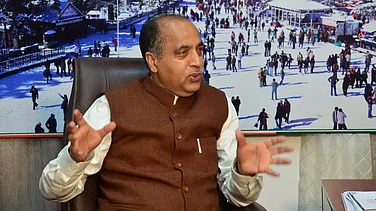Unlike other parts of India, Keralam (not Kerala!) appears from the outside as a progressive thinking society. Public education pioneered by missionaries, the reform movements and an upper-hand of Left ideology in the state are the reasons for it. However, when an opportunity arises, Keralam does reveal its regressive mindset.
Instances such as the ban on the play Christhuvinte Aaraam Thirumurivu (The Sixth Sacred Wound of Christ), writer Rajalakshmi’s suicide, the cold response to the chopping of a professor’s hand, the incidents relating to women’s entry to Sabarimala etc, are only some examples of it. One may also recall the criticisms from the Left against Arundhati Roy’s God of Small Things at the time of its publication. The attack against Meesha is the latest addition to this long list.
Unfettered imagination and expression are the signs of a democratic society. Are those things, guaranteed by our courts and Constitution, possible in today’s India and Kerala? Is a book like The Seventh Function of Language, written in French by Laurent Binet, possible in Malayalam? Roland Barthes’s murder is the subject in that book. Those suspected include Michel Foucault and former French president, Mitterrand. Can we write a novel here with those living writers and politicians as characters without fearing for our lives? Do we know the difference between fiction and real life? We think fiction is real and write about real life in exaggerations, as if it’s a piece of fiction.
You will be accorded the status of a veteran literary figure if you can write without hurting anyone. Awards and platforms will come seeking for you. You will get a chance to raise social criticisms too, on a conditional basis. You can be vocal about Palestine, but don’t utter a word about Kashmir. You can write on Emergency and Naxalism with nostalgia, but don’t touch the political icons. You can recount the yesteryear’s anti-caste movements, but pretend that there is no caste today. Self-censorship is good for your health today.
Some caste leaders and bishops are the ones Keralam is most scared of today. It’s quite normal here to spot people’s representatives sitting on the doorsteps of caste leaders, who, with tilak on their forehead, open their mouths only to put across feudal follies and stupidities. They think these masters have the right to advise them, and, if needed, to scold them. The final word on an assembly seat or a cabinet berth lies with the headquarters of caste-based organisations. And the bishops are entitled with the licence to encroach upon forests. They think that they can kill wild animals as they wish.
Media is no exception. Newspapers spare 40 per cent of their editorial space for news related to religious institutions and caste-based organisations. Tours of tantris, appointments of pujaris, illness of temple elephants and the speeches of heirs from the erstwhile Travancore royal family, who worship Brahmins, get front page coverage.
One of the people who stood against Meesha is a prominent caste leader who is notorious for his idiocy. Some Malayalam newspapers carried the Supreme Court verdict on Meesha only in a corner on the obit page even though it was prominently carried by English dailies. They are all scared of this leader.
Even though real life is full of abuse, misogyny, and violence against Dalits, there is an unwritten law that says they should not be seen in movies and literature. You hear words like ‘f**k’ in English films screened here, but such words in Malayalam cinemas will get censored. You are prevented from portraying those protected creatures in films; you can’t even mention their names. Recently, the censor board has apparently asked a film’s producer to drop a high-flying fugitive industrialist’s name. Hope it’s not true.
Whatever the court says, it is for society to implement it. Leave aside homosexuality, even sex between a man and a woman is a case of moral policing in Kerala. It is quite normal here to round up and beat those poor couples who search for a quiet place to have sex. Let’s hope freedom of expression does not meet the same fate because singing, writing, dancing etc, are signs of being human.
(Translated from Malayalam by Thufail P.T.)
(The author is a writer. His latest book, Meesha, came under attack from the ‘moral police’)





















